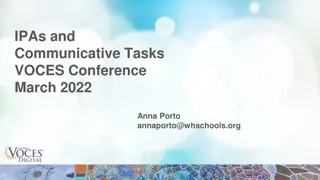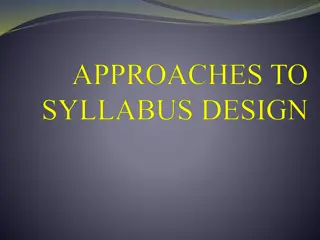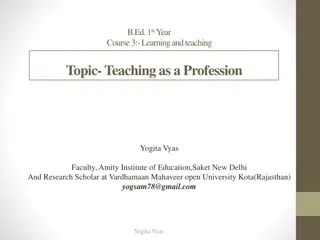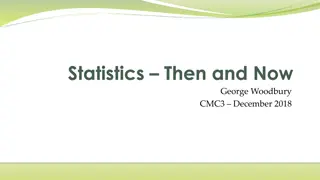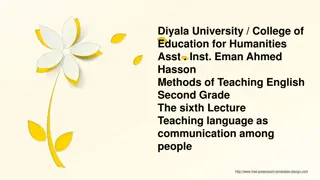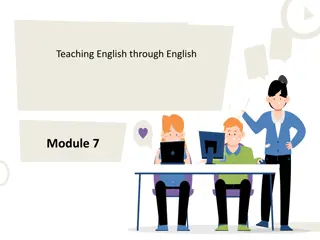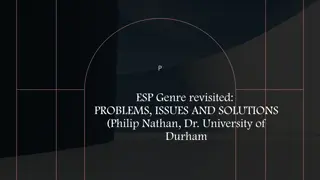C is for Communicative Teaching: Tips for TEACH Principles
Developed by the Senate Teaching and Learning Committee, the TEACH Principles focus on transparent, evidence-based, aspirational, and humane teaching. This resource provides valuable insights into communicative teaching characteristics and tips for fostering student engagement outside the classroom through office hours. Learn how to effectively utilize office hours to enhance student outcomes and create a more supportive learning environment.
Download Presentation

Please find below an Image/Link to download the presentation.
The content on the website is provided AS IS for your information and personal use only. It may not be sold, licensed, or shared on other websites without obtaining consent from the author.If you encounter any issues during the download, it is possible that the publisher has removed the file from their server.
You are allowed to download the files provided on this website for personal or commercial use, subject to the condition that they are used lawfully. All files are the property of their respective owners.
The content on the website is provided AS IS for your information and personal use only. It may not be sold, licensed, or shared on other websites without obtaining consent from the author.
E N D
Presentation Transcript
C is for Communicative Intro and Tips for the TEACH Principles
Developed by the Senate Teaching and Learning Committee Academic Senate endorsed spring 2022 "Principles of Good Practice in Teaching" Based in: Need for a better "definition" of good teaching Literature around best practices What are the What are the TEACH TEACH Principles? Principles?
TEACH TRANSPARENT EVIDENCE-BASED ASPIRATIONAL COMMUNICATIVE HUMANE ysu.edu/TEACH
Communicative Teaching Characteristics Communicative Teaching Characteristics Is available during scheduled student support (office) hours Effectively presents information, and checks for and responds to student understanding Is approachable to students outside the classroom Gives regular and meaningful formative feedback Is an active listener and open to diverse viewpoints
A focus on office hours: your office hours are more important than you think! Cuseo found that faculty-student contact outside the classroom has multiple positive outcomes, including: Retention/persistance to graduation Academic achievement Critical thinking Personal and intellectual development Educational aspirations Satisfaction with faculty and college Perceptions of college quality Faculty-student interaction is the most important factor in student belonging (Bowen, 2012) Communicative Communicative Teaching Teaching
Communicative Teaching Tip: Getting Communicative Teaching Tip: Getting Students to Come to Student Support Hours* Students to Come to Student Support Hours* Help students understand how they can use office hours (e.g., review paper feedback, get study strategies) and how to prepare Incentivize attendance (extra credit point, "oops" voucher, "50/50 question") Incorporate an office hours visit into an assignment Schedule at times your students are likely to need you (e.g., the afternoon before an assignment or exam) Include the option of virtual office hours and/or appointments Consider using MS Bookings to schedule appointments (ITL example) *AKA Office Hours More ideas: TEACH on office hours, TEACH on approachable outside class
DID YOU SIGN-IN? Engage with ITL 3 times this fall through workshops, book club, podcast groups, or consults and receive a $25 gift card. THANK YOU for joining us today! Before you go Complete a feedback card or fill out a feedback form online.
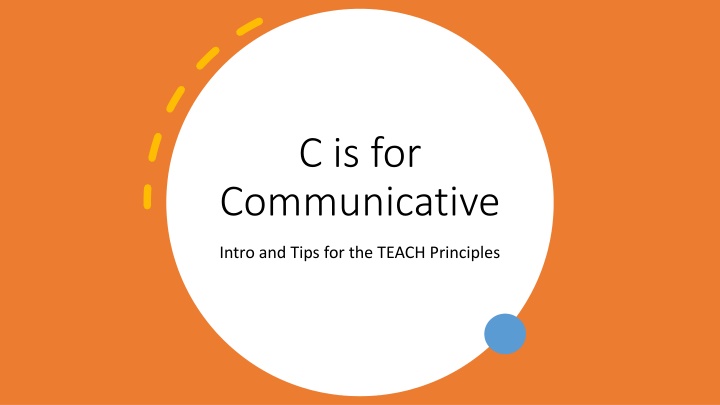


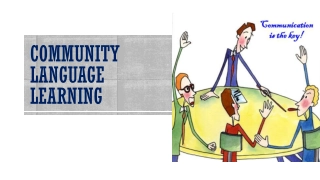
![❤[PDF]⚡ Escaping from Eden: Does Genesis Teach that the Human Race was Created](/thumb/21697/pdf-escaping-from-eden-does-genesis-teach-that-the-human-race-was-created.jpg)


